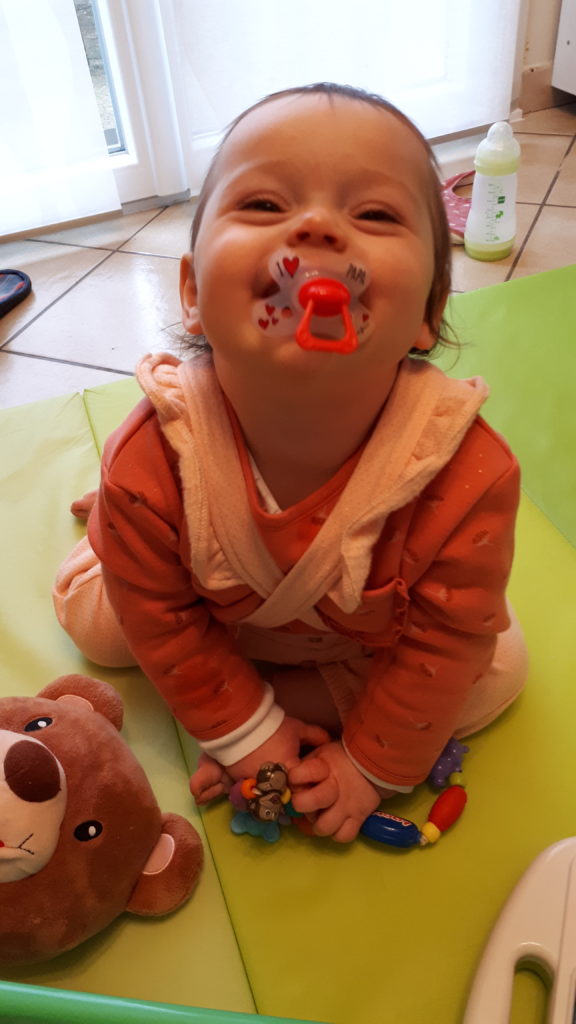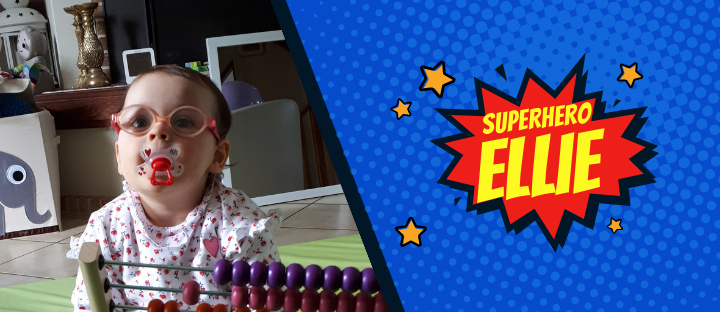“Our little princess is a perfect example of happiness. She laughs a lot and never complains.”
A message from Ellie’s family:
Our only daughter Ellie is almost two years old, and we live in France (near Paris). The months following her birth felt like most families with a newborn baby: tiredness and happiness! We noticed nothing unusual with our precious girl. When she reached seven months old, we started noticing delay in her acquisitions, muscle tone weakness and also issues with her eyes (eyes rolling up, with short absences). This prompted a few months of medical consultations and exams in order to find out what was going on. Her Neuropediatrician immediately requested genetic testing. Six months later, a diagnosis was found. Ellie was found to have a mutation of the KIF1A gene. Medical teams in our local hospital were honest. They never heard about NESCAV syndrome (one of the names used to report complex forms of KIF1A Associated Neurological Disorder).
Our world collapsed. It felt like this tiny little gene mutation was stealing our daughter’s chance to have a simple and normal life. She will have to fight for motor skills She will have to deal with an intellectual disability and vision troubles. Epilepsy may appear, she may never be able to walk or speak, and will never be autonomous. Just thinking we may never have the chance to have a conversation with our daughter is so scary. After a lot of tears, we realized Ellie has one life, so let’s make the best of it!
Our little princess is a perfect example of happiness. She laughs a lot and never complains. We were so proud when she finally learned to turn herself around and sit by herself. It seems easy for most kids, but it’s a difficult achievement for many KIF1A babies. She is still unable to crawl or move on all fours, but as every superhero, she keeps trying and makes progress at her own pace.
If Ellie never gives up, then neither will we. Understanding KIF1A mutations and finding a cure or treatment for KAND is hard, but not impossible. Human knowledge increases every year, and science has proven on many occasions that something impossible ten years ago can now be achieved. We just have to keep working, studying, testing and inventing new tools to help and support people. With a bit of luck, a cure or treatment will be found. It would make us the happiest parents in the world!


